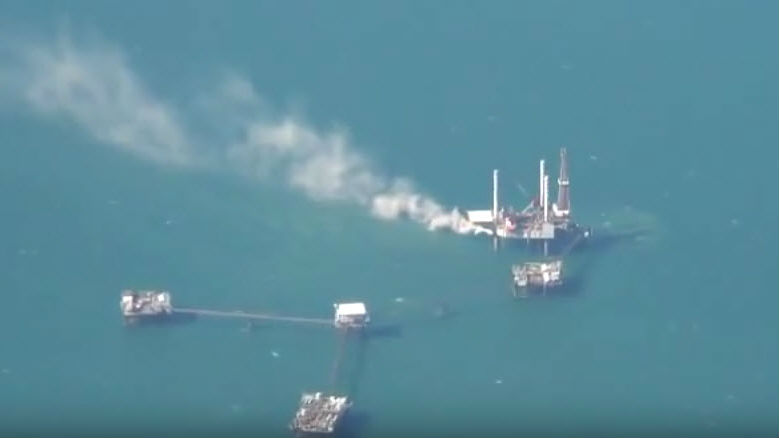Bankrupt Company Sentenced Over Platform Explosion

Texas-based Black Elk Energy Offshore Operations has been sentenced over the 2012 explosion on the West Delta 32 production platform that killed three and injured several others.
The company was sentenced on eight felony violations of the Outer Continental Shelf Lands Act (OCSLA) and one misdemeanor count of violating the Clean Water Act. Black Elk has been ordered to pay a $4.2 million fine. However, due to the company's bankruptcy, the $4.2 million will be a general unsecured claim against the company's estate.
This case is related to the recent conviction of Wood Group PSN in the Western District of Louisiana for their role in operations on the platform. Wood Group PSN was ordered to pay $7 million for falsely reporting over several years that personnel had performed safety inspections on offshore facilities in the Gulf of Mexico and $1.8 million for negligently discharging oil into the Gulf of Mexico in violation of the Clean Water Act after the explosion.
Details of the Incident
The company undertook platform repairs which included “hot work.” Hot work on an oil production facility is a hazardous activity capable of causing injury or death. Title 30 of the Code of Federal Regulations requires that written permission, commonly referred to as a “hot work permit,” be issued by the welding supervisor or designated person in charge before any hot work on a production platform begin. At a maximum, a hot work permit is valid for 12 hours. Once a hot work permit expires, all the precautionary steps should be complete before a new hot work permit is issued.
Starting November 8, 2012, Christopher Srubar, a co-defendant and Wood Group PSN employee and West Delta 32 person in charge, issued hot work permits for the construction work related to the West Delta 32 projects. However, Srubar stopped issuing hot work permits and conducting all-hands safety meetings and instead delegated the permitting to the Wood Group PSN “C” operator. Neither Srubar nor the “C” operator conducted a daily pre-work inspection with the construction crew, staffed by Grand Isle Shipyards (GIS), nor did they designate a fire watch for the hot work areas.
On November 15, 2012, hot work commenced on the platform's Lease Automatic Custody Transfer (LACT) unit with the knowledge of co-defendants Don Moss and Curtis Dantin. Moss and Dantin did not ask Srubar if he completed a safety check of the area. In addition, they did not complete a pre-work inspection or issue a warning to the GIS crews to step welding on the sump line piping.
Instead, Dantin instructed some of the crew to begin the welding of the sump line piping for the LACT unit upgrade. The single hot work permit the “C” operator issued for November 16 did not state that the LACT unit or sump line piping were areas that were safe for hot work.
Workers started to make cuts to the sump line piping leading to the wet oil tank, causing liquid to spill from the piping. At approximately 9:00 a.m., hydrocarbon vapors that escaped from the wet oil tank ignited, causing a series of explosions in the three oil tanks on the platform. The fire and explosions resulted in the deaths of GIS employees Avelino Tajonera, Elroy Corporal, and Jerome Malagapo. Other workers were seriously burned and physically injured.
More Court Action
Black Elk admitted that its employees and agents were negligent in the manner in which they planned and executed the hot work on West Delta 32 platform. Co-defendant GIS faces manslaughter charges, and Dantin, Srubar, and Moss face criminal violations of the Clean Water Act in the Eastern District of Louisiana. The OCSLA charges against GIS, Moss, Srubar, and Dantin, were dismissed by the district court and are pending appeal by the government to the U.S. Fifth Circuit Court of Appeals.
